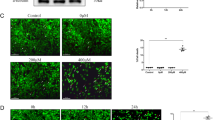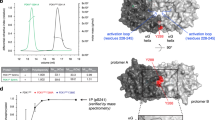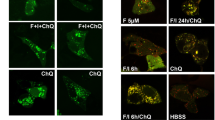Abstract
Extracellular ATP has been known to modulate various cellular responses including mitogenesis, secretion and morphogenic activity in neuronal cells. In the ATP-induced morphogenic activity, focal adhesion kinase(s) such as Fak have been suggested to play a critical role. Binding of ATP to its specific cell surface receptor in PC12 cells induces phospholipase D (PLD) activity. However, the role of PLD on ATP-induced Fak activation in PC12 cells remains unclear. In this study, we investigated the role of PLD on the ATP-induced Fak activation and paxillin phosphorylation using two established cell lines: wild type PLD2- and lipase-inactive mutant PLD2-inducible PC12 cells. Stimulation of cells with ATP caused PLD2 activation via classical protein kinase C activation. ATP also induced Fak activation, and paxillin phosphorylation, and were dramatically reduced by wild type PLD2 overexpression but not by lipase-inactive mutant PLD2 overexpression. When the PC12 cells were pretreated with propranolol, a specific inhibitor for phosphatidic acid phosphohydrolase resulting in the accumulation of PA, ATP-induced Fak activation and paxillin phosphorylation were also reduced. We found that inhibition of tyrosine phosphatases by pervanadate completely blocked PLD2-dependent Fak and paxillin dephosphorylation. Taken together, we suggest that PLD2 activity might play a negative role in ATP-induced Fak and paxillin phosphorylation possibly through tyrosine phosphatases.
Similar content being viewed by others
Article PDF
Author information
Authors and Affiliations
Rights and permissions
This is an Open Access article distributed under the terms of the Creative Commons Attribution Non-Commercial License (http://creativecommons.org/licenses/by-nc/3.0/) which permits unrestricted non-commercial use, distribution, and reproduction in any medium, provided the original work is properly cited.
About this article
Cite this article
Bae, YS., Ryu, S. ATP-induced focal adhesion kinase activity is negatively modulated by phospholipase D2 in PC12 cells. Exp Mol Med 33, 150–155 (2001). https://doi.org/10.1038/emm.2001.26
Published:
Issue date:
DOI: https://doi.org/10.1038/emm.2001.26



